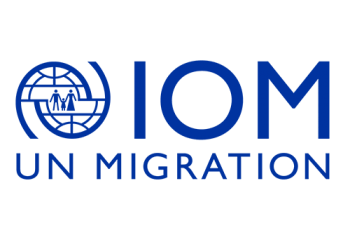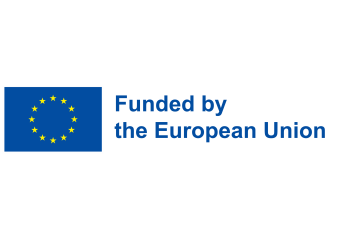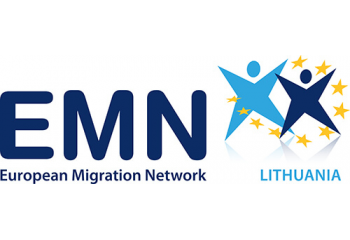Glossary
The EMN Glossary – as one of the key products of the EMN - improves comparability by enabling a common understanding and use of terms and definitions relating to asylum and migration. The Glossary draws on a variety of sources, but primarily on the legislation of the EU asylum and immigration acquis, and makes terms available in the majority of EU Member State languages.
The online version is regularly updated and available in various languages.
- BG: семейно ядро
- CZ: jádro rodiny
- DE: Kernfamilie
- EE: tuumikperekond
- EN: nuclear family
- ES: familia nuclear
- FI: ydinperhe
- FR: famille nucléaire
- GA: teaghlach núicléach
- GR: πυρήνας Οικογένειας
- HU: nukleáris család
- IT: famiglia nucleare
- LT: šeimos branduolys
- LV: nukleārā ģimene
- MT: Familja nukleari
- NL: kerngezin
- NO: kjernefamilie
- PL: rodzina nuklearna
- PT: núcleo familiar
- RO: familie nucleară
- SE: kärnfamilj
- SK: užšia rodina
- SL: osnovna družina
The spouse and the minor children of a family.
This definition refers specifically to the context of family reunification only.
- BG: нетна миграция
- CZ: saldo migrace
- DE: Nettomigration
- EE: rändesaldo
- EN: net migration
- ES: saldo migratorio
- FI: nettomaahanmuutto
- FR: solde migratoire
- GA: imirce ghlan
- GR: δίκτυο μετανάστευσης
- HU: nettó migráció
- IT: migrazione netta (o saldo migratorio)
- LT: migracijos saldas
- LV: migrācijas saldo
- MT: Migrazzjoni netta
- NL: migratiesaldo (syn.: netto migratie)
- NO: netto migrasjon
- PL: migracja netto
- PT: saldo migratório
- RO: migraţia netă
- SE: nettomigration
- SK: migračné saldo / čistá migrácia
- SL: neto migracija
The difference between immigration into and emigration from a given area during the year.
2. Since many countries either do not have accurate figures on immigration and emigration or have no figures at all, net migration is frequently estimated as the difference between total population change and natural increase between two dates (in Eurostat’s database it is then called corrected net migration). The statistics on net migration are therefore affected by any statistical inaccuracies in any of the components used for their derivation.
- BG: non-refoulement/ забрана за експулсиране или връщане
- CZ: zákaz vyhoštění a navracení
- DE: Nichtzurückweisung / Non-refoulement / Schutz vor Zurückweisung / Verbot der Ausweisung und Zurückweisung
- EE: tagasisaatmise lubamatus / non-refoulement
- EN: non-refoulement
- ES: non-refoulement
- FI: palauttamiskielto
- FR: non-refoulement / interdiction de retour forcé (LU)
- GA: neamh-refoulement
- GR: μη- επαναπροώθηση
- HU: visszaküldés tilalma
- IT: non-refoulement
- LT: negrąžinimas
- LV: neizraidīšana
- MT: Prinċipju (il-) ta’ non-refoulement - li ma jsirx ritorn imġiegħel jew sfurzat
- NL: non-refoulement (syn.: het beginsel van niet-uitwijzing)
- NO: vern mot utsendelse (b) / vern mot utsending (n)
- PL: zasada non-refoulement/ zasada niewydalania
- PT: non-refoulement
- RO: non-refoulment/ nereturnare
- SE: non-refoulement (förbud mot avvisning / utvisning)
- SK: zásada zákazu vyhostenia alebo vrátenia / zásada non-refoulement / princíp nenavrátenia
- SL: načelo nevračanja
In the refugee context, a core principle of international refugee law that prohibits States from returning refugees in any manner whatsoever to countries or territories in which their lives or freedom may be threatened on account of their race, religion, nationality, membership of a particular social group or political opinion.
- BG: гражданин на трета страна
- CZ: občan třetí země
- DE: Nicht-EU-Bürger
- EE: Mitte-EL kodanik
- EN: non-EU national
- ES: nacional de tercer país
- FI: EU:hun kuulumattoman valtion kansalainen
- FR: non-ressortissant d’un État membre
- GA: náisiúnach neamh-AE
- GR: υπήκοος εκτός Ε.Ε.
- HU: nem EU-s állampolgár
- IT: cittadino non comunitario
- LT: ne ES pilietis
- LV: persona bez ES pilsonības
- MT: Ċittadin(a) ta’ pajjiż barra l-UE / mhux fl-UE
- NL: derdelander (syn.: niet-EU onderdaan)
- NO: borger av et land som ikke er medlem i EU (b) / borgar av eit land som ikkje er medlem i EU (n)
- PL: obywatel państwa trzeciego
- PT: nacionais de países terceiros
- RO: cetăţean al unui stat terţ
- SE: icke-EU-medborgare / tredjelandsmedborgare
- SK: štátny príslušník tretej krajiny / osoba, ktorá nie je občanom EÚ
- SL: ne-državljan EU
Any person not having the nationality of an EU Member State.
This means that nationals of NO, IS, LI and CH are non-EU nationals, but they are not third-country nationals, as defined, primarily because they have the right to free movement.
- BG: натурализация
- CZ: nabytí občanství
- DE: Einbürgerung
- EE: naturalisatsioon
- EN: naturalisation
- ES: adquisición de nacionalidad
- FI: kansalaistaminen
- FR: naturalisation
- GA: eadóirsiú; eadóirseacht
- GR: πολιτογράφηση
- HU: honosítás
- IT: naturalizzazione
- LT: natūralizacija
- LV: naturalizācija
- MT: Naturalizzazzjoni
- NL: naturalisatie
- NO: naturalisering
- PL: naturalizacja
- PT: naturalização
- RO: obţinerea cetăţeniei / naturalizare
- SE: naturalisation
- SK: naturalizácia
- SL: naturalizacija
Any mode of acquisition after birth of a nationality not previously held by the target person that requires an application by this person or their legal agent as well as an act of granting nationality by a public authority.
This definition does not include automatic acquisition that is not initiated by the individual concerned or their legal agent (even in cases where the individual has an option to decline this attribution of nationality) or acquisition of nationality based on a unilateral act by the target person (e.g. acquisition by declaration or option).
- BG: национален механизъм за насочване
- CZ: národní referenční mechanismus
- DE: nationaler Überweisungsmechanismus
- EE: nõustamisele suunamise riiklik mehhanism
- EN: national referral mechanism
- ES: Mecanismo nacional de derivación
- FI: kansallinen ohjautumisjärjestelmä
- FR: mécanisme national d’orientation
- GA: meicníocht náisiúnta atreorúcháin
- HU: nemzeti áldozatirányítási rendszer
- IT: meccanismo nazionale di riferimento
- LT: nacionalinis nukreipimo mechanizmas
- LV: nacionālais nosūtīšanas mehānisms
- MT: Mekkaniżmu nazzjonali għal riferiment / ta’ referenza
- NL: nationaal verwijsmechanisme
- NO: nasjonal henvisningsordning (b) / nasjonal tilvisingsordning (n)
- PL: krajowy mechanizm referencyjny
- RO: mecanism naţional de sesizare
- SE: dažniausiai vartojamo išversto termino nėra
- SK: národný referenčný mechanizmus
- SL: nacionalni mehanizem za opozarjanje
Mechanism aimed at identifying, protecting and assisting victims of trafficking in human beings, through referral, and involving relevant public authorities and civil society.
2. The Organisation for Security and Cooperation in Europe (OSCE) defines an NRM as a cooperative framework at national level by which state actors coordinate their efforts in a strategic partnership with civil society to identify, protect and assist victims of trafficking in human beings to ensure that the human rights of trafficked persons are respected and to provide an effective way to refer victims of trafficking to services. For more OSCE: National referral mechanism: joining efforts to protect the rights of trafficked persons, 2004.
3. The National Rapporteurs or Equivalent Mechanisms (NREMs) are responsible for monitoring the implementation of anti-trafficking policy at the national level and play a key role in data collection on trafficking in human beings at national and EU level.
- BG: Национални точки за контакт по интеграция
- CZ: národní kontaktní body na integraci
- DE: Nationale Kontaktstellen für Integration
- EE: integratsiooni riiklikud kontaktpunktid
- EN: National Contact Points on Integration
- ES: puntos de contacto nacional de integración
- FI: kotouttamisasioiden kansalliset yhteyspisteet
- FR: Points de contact nationaux en matière d’intégration
- GA: Pointí Teagmhála Náisiúnta le haghaidh Imeascadh
- GR: Εθνικά Σημεία Επαφής για την Ένταξη
- HU: nemzeti integrációs kapcsolattartó pontok
- IT: Punti di contatto nazionali sull’integrazione
- LT: nacionaliniai integracijos informacijos centrai
- LV: nacionālie integrācijas kontaktpunkti
- MT: Punti ta’ Kuntatt Nazzjonali fuq l-Integrazzjoni
- NL: nationale contactpunten voor integratie
- NO: nasjonale kontaktpunkter på integreringsfeltet (b) / nasjonale kontaktpunkt på integreringsfeltet (n)
- PL: Krajowe punkty kontaktowe ds. Integracji
- PT: Pontos de Contacto Nacionais de Integração
- RO: punctele naţionale de contact pentru integrare
- SE: nationella kontaktpunkter på integrationsområdet
- SK: národné kontaktné body pre integráciu
- SL: Nacionalne kontaktne točke za integracijo
A network of authorities responsible for integration issues which serves to facilitate exchange of information and good practice at EU level with the purpose of finding successful solutions for integration of immigrants in all EU Member States and to ensure policy coordination and coherence at national level and with EU initiatives.
2. The National Contact Points on Integration consider inter alia employment, education, language, health, housing, culture and participation. The network’s long-term objective is to develop and reinforce the European framework for integration, in order to define basic common principles and objectives, to determine assessment measures, and to reinforce the coordination of national and European integration policies.
3. One output which the National Contact Points on Integration are very much involved in are the Handbooks on Integration. For more information, see the European website on Integration.


